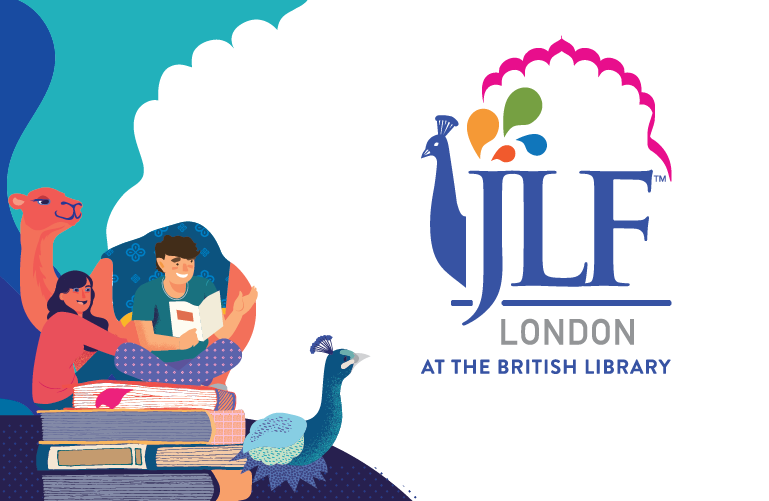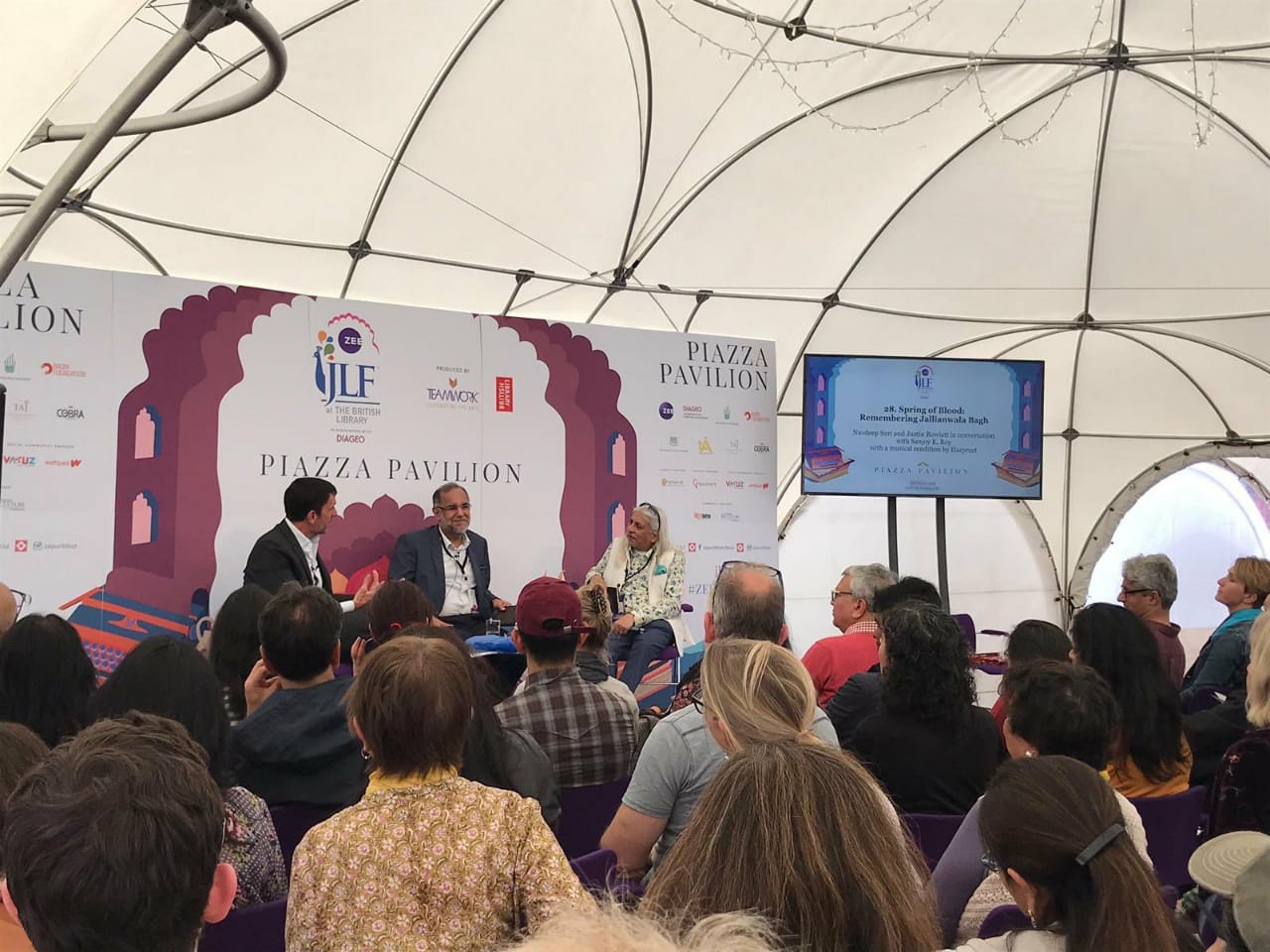


Springs of Blood: Remembering Jallianwala Bagh Navdeep Suri and Justin Rowlatt in conversation with Sanjoy K. Roy, with a musical rendition by Harpreet
The session opened with music by Harpreet played through the venue speakers, since he wasn’t granted a visa to be at ZEE JLF in person. There was a reverential silence in the room, almost as if the audience was paying homage.
The discussion started with descriptions by Navdeep Suri about his grandfather, Jallianwala Bagh. He described how his grandfather wrote over 55 books, and was known for being a novelist rather than a poet. He went on to describe how in 1949, the family discovered that there was a poem – Springs of Blood - but they had never seen it. Mukshur finally found it by going through a gunny sack of books; the audience could imagine the look of surprise on his face when he stumbled across that treasure.
100 years after this event, the ZEE JLF audience were drawn back right into the heart of the experience, as if it were in the present, facilitated through readings from the book, both by Navdeep Suri and Justin Rowlatt. So dearly described by Navdeep Suri as partly a poem, partly a historical diary log of events, Sanjoy K. Roy revealed that he had been breath-taken when he first received these manuscripts: they created a vivid description of the brutality of events, and sacrifices people had to make for freedom. Navdeeo Suri went on to describe how his grandfather used to read novels while he was in jail, which inspired him to write for social reform thereafter.
The unfolding of events is broken down two days prior to April 13 1919, giving the audience the backstory of that fateful day. Justin Rowlatt described how he had felt so passionate about the story, that his emotions came through in his interviews. He revealed how touched and surprised he was that Mukshur bore no animosity towards him for Britain’s role in the story. He asked him, how can you be so compassionate, to which Mukshur replied, ‘you feel remorse, so I can forgive you.’
The question and answer part of the session was hair raising, and Sanjoy K. Roy did an amazing job of funnelling the highly charged questions from the audience, as well as dropping in remarks that the audience laughed in agreement with. The questions were orientated around British attitudes to teaching imperial history, and many applauded when one audience member asked, who is in charge of setting history classes in the curriculum?
The other sensitive issue was the nature of British apologies, and the degree of arrogance with which they allow Indians due credit and remembrance. One woman in the audience proposed some ‘food for thought,’ suggesting the Royal Family be part of building relations campaign with India, to aid the Brexit transition. This tied into the larger message of the session: the need for governments to recognise and allow freedom of speech, whilst governing conflicting ideas, as well as finding ways together to not only listen to each other as nations, but hear each other as humans.



Leave a comment